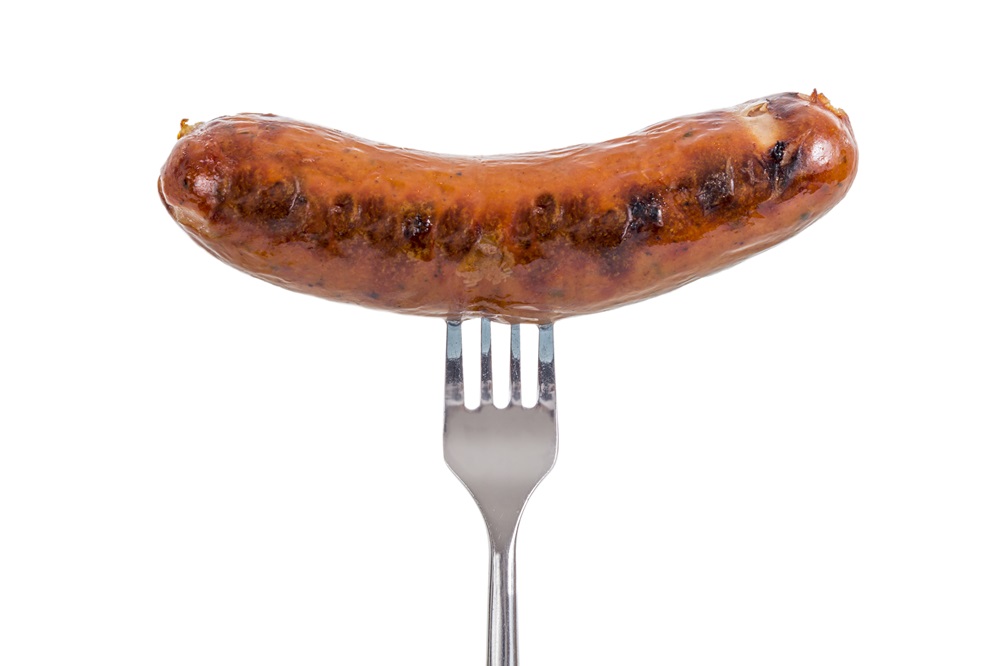Mouthwash, teabags and sausages latest examples of ‘shrinkflation’ – Which?

Shrinking mouthwash bottles, fewer teabags and sausages with less pork are among downsized and downgraded supermarket products as manufacturers and retailers cut costs, a watchdog has found.
Which? found that Listerine Fresh Burst mouthwash shrank from 600ml to 500ml but went up in price by 52p at Tesco, meaning shoppers paid 21% more for 17% less – or an increase to the unit price per 100ml of 46%.
PG Tips The Tasty Decaf Pyramid tea bags went from containing 180 teabags to just 140 at a number of supermarkets.
Among downsized products were Andrex Flushable Washlets Toilet Wipes decreasing from 40 to 36 in a pack, Bisto Best Chicken Gravy Granules from 250g to 230g, Cadbury’s Brunch Chocolate Chip Bars from six to five in a pack and Kettle Chips Sea Salt and Crushed Black Peppercorns Crisps from 150g to 130g.
Also becoming smaller was Lurpak Slightly Salted Butter Box from 225g to 180g, McVitie’s Digestives Dark Chocolate Biscuits from 433g to 400g, Yeo Valley Organic Salted Spreadable from 500g to 400g and Coffee Mate Original Whitener from 500g to 450g, Which? said.
Skimpflation
The consumer group found other products were downgraded to include fewer expensive ingredients in examples of so-called “skimpflation”, including Tesco Finest sausages reduced from 97% pork to 90%, Yeo Valley Spreadable Butter from containing 54% butter to 50%, and Morrisons Guacamole (150g) from 80% avocado to 77%.
Subtle recipe changes were also seen in Tesco Beef Lasagne (1.5kg) from 23% beef to 19%, Tesco Tex Mex Chicken Enchiladas (480g) from 27% chicken to 20% and Morrisons The Best Lasagne Al Forno (400g) from 30% beef to 26%.
Which? found that over three quarters of people (77%) have noticed “shrinkflation”, and 36% had noticed “skimpflation”.
Manufacturers told the watchdog that changes often reflected their own costs or helped to keep products more affordable for consumers, and in some cases had improved the flavour or healthiness of a product.
Which? Retail editor Ele Clark said: “Our research shows that while some popular products are subtly decreasing either in size or quality, the same can’t be said for their prices – which means shoppers are inadvertently paying more for less.
“Supermarkets and manufacturers must be more upfront by making sure changes to popular products are clear, and by ensuring that unit pricing is prominent, legible and consistent in-store and online so that shoppers can easily compare prices across different brands and pack sizes.”
Branded products
British Retail Consortium director of food and sustainability Andrew Opie said: “Nearly all examples provided of shrinkflation are on branded products, not own label, meaning they reflect decisions by the manufacturers not the retailers.”
“Nonetheless, given the challenges facing households from the cost of living squeeze, retailers are solely focused to find ways to limit rising prices for customers against the rising cost of production, while maintaining the excellent quality of products.
“Prices and sizes of all products are clearly labelled so that customers can make informed decisions about their purchases.”
A spokeswoman for Arla, which makes Lurpak, said: “Our new 400g spreadable and 200g block options have not been kept at the same price – the prices have reduced in proportion with the pack size reduction. Not only has the price reduced because of the smaller pack size, but the price has also reduced per kg.”
A Yeo Valley spokeswoman said: “Yeo Valley Organic shared the news with consumers ahead of the changes in-store through its website and email.
“There’s no hiding from the fact that the cost of producing high-quality tasty organic food has never been higher. While pricing is set by retailers, we made the hard decision to reduce the pack size to help keep organic as accessible as possible.”
Deltapoll surveyed 1,568 UK adults in October.
Support our Nation today
For the price of a cup of coffee a month you can help us create an independent, not-for-profit, national news service for the people of Wales, by the people of Wales.







This has been going on for years. If you compare many products with the same product years ago you’ll see they’ve shrunk along with becoming more expensive. It’s a subtle way where we pay more for far less and companies maximise their profits at our expense. Greed rules. The UK government should be going more to prevent this but many politicians have fingers in this financial pie so change is unlikely. An independent Cymru would not be perfect but at least the country will have more power to eliminate this sort of profiteering.
Oddly I’ve seen Jaffa Cakes in different quantities in different supermarkets. When Cymru is independent they can presumably make it law that they are only sold in multiples of 12.